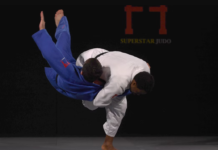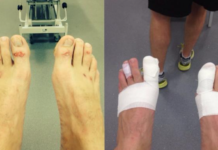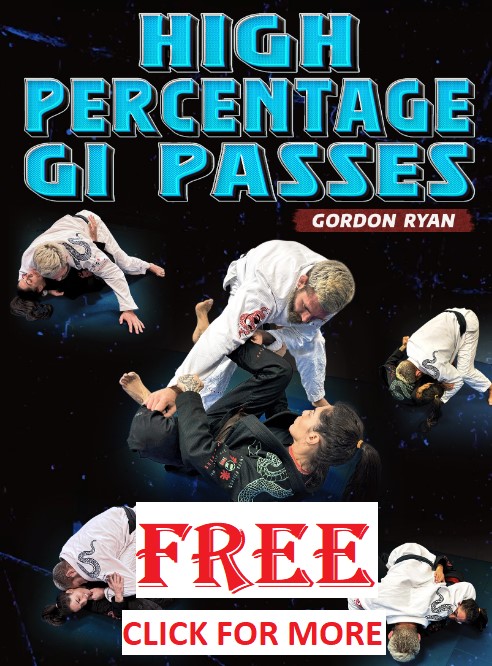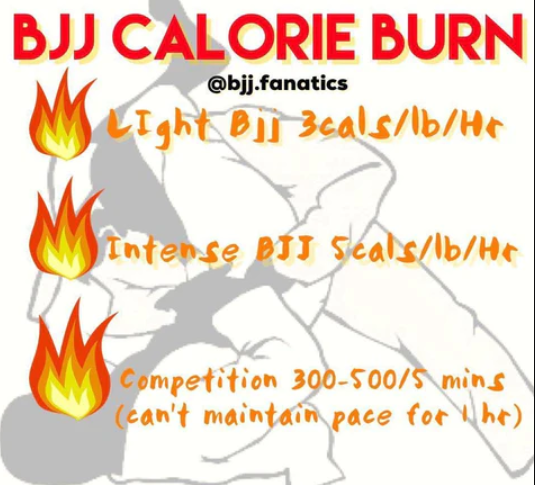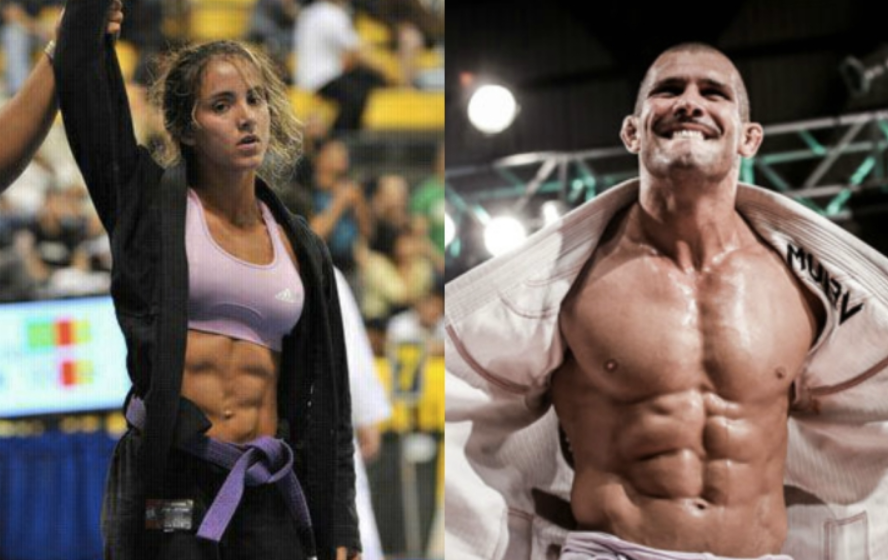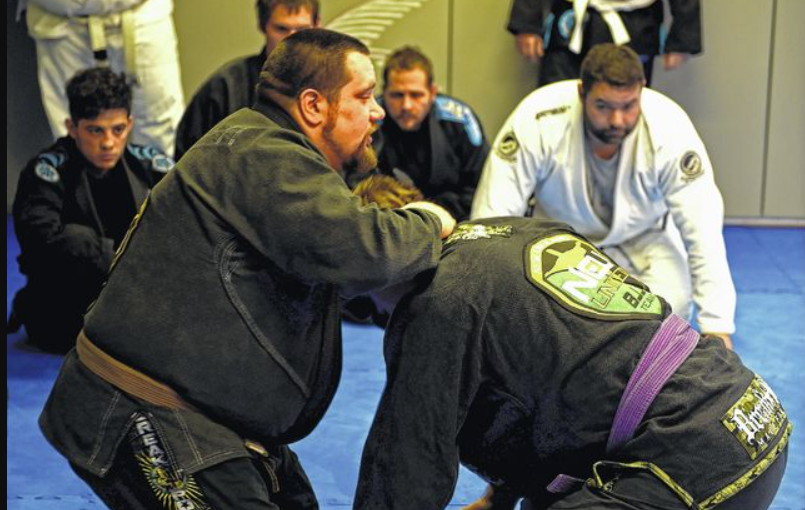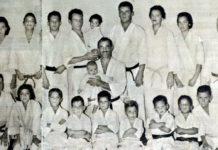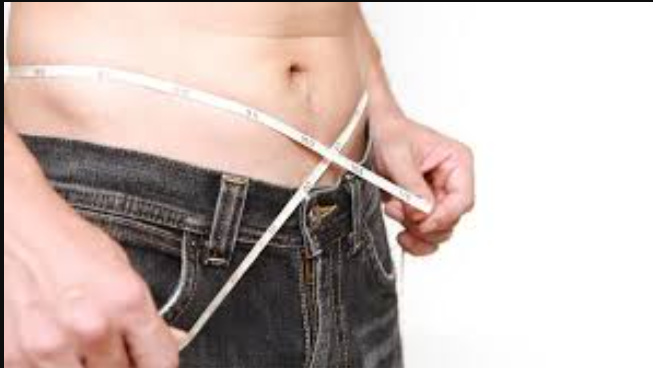
Have you wondered whether you can use Jiu-JItsu for weight loss and how many calories you can actually burn while grappling? Brazilian Jiu-Jitsu is a martial art that focuses on grappling and ground fighting. BJJ is not only a fun sport and great self-defense skill but also a fantastic way to exercise that can help you burn calories and lose fat.
In this article, we will explore how Jiu-Jitsu can help you achieve your weight loss goals and improve your physical and mental well-being. We will also compare weight loss and fat loss, and explain why they are different concepts. Finally, we will discuss weight loss vs weight cutting in BJJ, and why you should be careful about the latter.
How Brazilian Jiu-Jitsu Helps You Burn Calories
Jiu-Jitsu is perfect for weight loss on account that it is a high-intensity activity that engages the entire body in every training session and requires the use of all three metabolic energy systems. When you train Brazilian Jiu-Jitsu, you are constantly moving, pushing, pulling, twisting, lifting, and resisting your opponent’s force. This requires a lot of strength, stamina, endurance, and coordination. As a result, you burn a lot of calories during your training session.
How many calories does jiu-Jitsu burn? It all depends on different things like your weight, the intensity of your training, your skill level, and the duration of your session.
However, according to some estimates, an average person can burn anywhere from 500 to 1000 calories per hour of jiu-jitsu training. That’s significantly more than jogging or basketball!
Of course, these numbers are only rough estimates and may vary depending on your individual circumstances.
Still, they give you an idea of how effective grappling martial arts like Jiu-Jitsu can be for burning calories and losing weight. To get a more accurate estimate of how many calories you burn during BJJ training, you can use a calorie calculator or a fitness tracker.
How Jiu-Jitsu Can Help You Lose Fat
Burning calories is not the only way that Jiu-Jitsu can help you lose weight. Training BJJ can also help you lose fat by increasing your muscle mass and improving your metabolism, and hormonal balance.
Muscle mass: Jiu-jitsu is a great way to build lean muscle mass throughout your body. Having more muscle helps you burn more calories by increasing your basal metabolic rate (BMR), even when you’re not doing anything.
Metabolism: BJJ can also boost your metabolism by creating an afterburn effect or excess post-exercise oxygen consumption (EPOC). This means that after a high-intensity workout like Jiu-Jitsu, your body continues to burn calories at a higher rate for several hours or even days. The reason behind this is that your body requires an increased supply of oxygen to recuperate from physical activity and reestablish its typical physiological processes.
Hormonal balance: BJJ effectively addresses hormonal balance by reducing stress hormones like cortisol and increasing growth hormones like testosterone and human growth hormone (HGH). Cortisol is a hormone that promotes fat storage and muscle breakdown when it is elevated for too long. Testosterone and HGH are hormones that promote muscle growth and fat burning when they are optimal.
How Much Fat Can BJJ Training Help You Lose?
Well, that also depends on several factors, such as your calorie intake, body fat percentage and training frequency. However, according to some estimates, an average person can lose about 1-2 pounds of fat per week after they start training Jiu-Jitsu 3-4 times a week and focus on eating a healthy diet.
Of course, these numbers are only rough estimates and may vary depending on your individual circumstances. However, they give you an idea of how effective BJJ for weight loss can be when it comes to stripping off and improving your body composition. To get a more accurate estimate of how much fat you lose with Jiu-Jitsu training, you can use a body fat scale or caliper, or a tape measure.
Weight Loss vs Fat Loss: What’s the Difference?
Let’s get one thing straight. Losing weight and losing fat are different things.
Weight loss means reducing the overall weight of your body, which includes muscles, water, bones, and fat.
Fat loss means reducing the amount of body fat relative to your overall weight, as represented by your body fat mass-to-total body mass ratio.
Why does this matter? Because weight loss is not always a good indicator of health or fitness, as it can also include muscle loss, water loss, or bone loss.
Muscle loss can reduce your strength, performance, and metabolism. Furthermore, water loss can cause dehydration, fatigue, and electrolyte imbalance. If your bones become weaker, you have a higher chance of developing osteoporosis, breaking bones, and getting hurt.
Fat loss, on the other hand, is helpful rather than harmful. First, it improves your health, fitness, and appearance. Next, it helps reduce your risk of chronic diseases, enhances your performance, and makes you appear leaner and stronger.
Therefore, when you train Jiu-Jitsu for weight loss, you should focus more on losing fat than losing weight. Jiu-Jitsu burns calories that will result mostly in fat loss, but only if you pair it with a proper weight loss program in terms of a diet that has you at a strategic caloric deficit while you’re actively training grappling.
Weight Loss vs Weight Cutting in Jiu-Jitsu
Another thing we need to clarify is the difference between weight loss and weight cutting in jiu-jitsu.
Weight loss refers to the long-term process of reducing your body fat percentage through exercise and nutrition.
Weight cutting refers to the short-term process of reducing your body weight through dehydration and calorie restriction before a competition.
Why do some Jiu-Jitsu practitioners cut weight before competitions? Because most competitions have weight classes, some practitioners believe that cutting weight can give them an advantage over their opponents by allowing them to compete in a lower weight class where they may be stronger or faster than their opponents.
What are the pros and cons of cutting weight for Jiu-Jitsu competitions? Cutting weight can have some benefits, such as:
- Making it easier to qualify for a lower-weight class;
- Giving you a psychological edge over your opponent;
- Making you feel lighter and more agile.
However, cutting weight can also have some drawbacks, such as:
- Reducing your strength and endurance;
- Increasing your risk of injury and illness;
- Affecting your mood and mental state;
- Causing dehydration and electrolyte imbalance;
- Compromising your recovery and performance.
How do weight loss and weight cutting compare in terms of their effects on health, performance, and body composition?
Weight loss can improve your health, performance, and body composition by reducing your body fat percentage, increasing your muscle mass, metabolism, and hormonal balance. It also plays an important role in enhancing your fitness, strength, flexibility, coordination, self-confidence, discipline, and stress management, all important qualities for a Jiu-Jitero.
Weight cutting can impair your health, performance, and body composition by reducing your muscle mass, metabolism, and hormonal balance, and compromising your fitness, strength, flexibility, coordination, self-confidence, discipline, and stress management.
Therefore, weight loss is generally better than weight cutting for improving your health, performance, and body composition in jiu-jitsu. In any case, you should also consult a professional before attempting to cut weight, as they can advise you on how to do it safely and effectively.
How to Use Jiu-Jitsu for Consistent Weight Loss
If you want to achieve serious calorie burning as a grappler, you need to set up both your training and your nutrition to support that goal. Here’s the “magic formula”:
You need to eat fewer calories than you burn in a given day in order to shove your metabolism towards fat-burning and inevitable weight loss. The trick is not to restrict calories too much or your body is going to resist the urge to increase metabolism.
You don’t have to follow complicated formulas to calculate your daily calorie needs. Just start by giving up on eating unhealthy foods and focus on eating three meals a day. the measurements are two fist-sized servings of protein, a palm-sized portion of carbs, and a thumb-sized position of fats per meal.
After a couple of weeks of eating like this, reduce the amount of carbs slightly to keep burning fat.
Eating like this won’t affect your athletic performance which means you can get all the workouts that you need at any average BJJ gym. One way you can use a regular BJJ class for sustainable weight loss is to use rolling as your main cardio workout.
Regardless of what belt you are in, focus on rolling hard and going fast, without paying too much attention to strategy or tactics. You’ll still have fun pulling off your favorite BJJ techniques but you’ll have to do it at a higher pace, which will get you better conditioned, improve your Jiu-Jitsu game and help you achieve substantial weight loss over time.
Maintaining a caloric deficit while avoiding fad diets and training purposefully is all you need to use Jiu-Jitsu for weight loss. BJJ is an extremely effective martial art for getting people into shape, regardless of their natural tendency towards athleticism.
BJJ practitioners that have been training for longer than 2 years are usually athletic, carry little body fat, and have great conditioning (and mostly no problem in staying away from junk food).
Conclusion
In conclusion, Jiu-Jitsu is an excellent weight loss plan to help you improve your health without the boredom of running on treadmills or starving yourself.
Jiu-jitsu can help you burn up to 1000 calories per hour and increase your muscle mass, metabolism, and hormonal balance.
Jiu-jitsu can also help you reduce stress and anxiety, which are known to cause weight gain. Jiu-jitsu can also teach you discipline and self-confidence, which can help you adopt a healthy lifestyle and avoid unhealthy habits.
You should also be careful about cutting weight for BJJ competitions, as it can have negative effects on your health and performance. You should consult a professional before attempting to cut weight for jiu-jitsu competitions, as they can advise you on how to do it safely and effectively.
Read more articles on the topic:
The Fighter Diet: What BJJ/MMA Fighters Eat to Lose Weight Quickly (and Safely)




